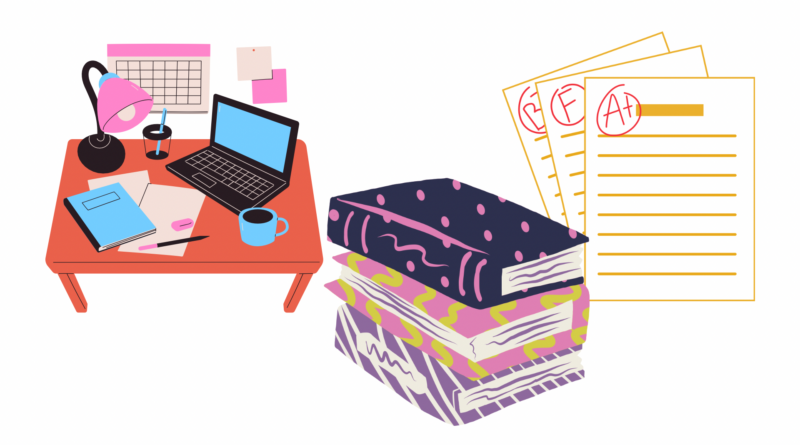Seniors share their experiences with comprehensive exams
Each semester at Maryville College, there is a buzz amongst groups of seniors. The excitement for graduation, finishing senior studies, and awards ceremonies are all at the front of their minds. While a lot of these also cause stress, there is one that, above all, acts as a looming source for the bulk of it: comprehensive exams.
We have all heard of them, even if we are nowhere near the time to take them. Professors talk about how to start studying for them even in your introductory-level courses. As an English major, I remember my first literature course and the terror I felt when I learned what “quote-ID’s” were. Immediately, I started reading passages with the thought in the back of my mind, “How will I ever remember this for comps?”
Over time, the initial anxieties faded, as they typically do. I made a note when professors said something like, “This will likely be a topic on comps.” I wished people luck when I heard they were taking them.
Then, it came time to schedule my senior year classes. I realized that now was the time. That anxiety built up quickly, and soon it was all I talked about. I started scorning my past self for not taking better notes. I spent more time in the library than I ever had.
For the people who have already taken comps, this is not surprising behavior. This exam encompasses such a wide range of knowledge, it can feel like you have to study everything you have ever learned to prepare for it.
Emily Christian, a senior business major who took her comps in the Fall semester, validated this feeling. She said, “It’s hard not to be nervous.”
The time for preparation felt like it lasted only a second. I saw seniors in Pearson’s eating pizza with one hand and flipping through a notebook with the other. I spent all my time rereading old texts, trying to brush up on every literary genre ever invented.
Professors, of course, play a large role in preparing us for comps. For instance, I got to watch an entire introductory video to the structure of the exam which both calmed and inflamed my nerves. I knew what I needed to study, but now, I had to figure out how to study it all in such a short time.
Christian described her resources similarly. “I used the study guides that my department put online,” she said. “I feel like this set me up for success.”
Kalli Knight, another senior, said, “I had two parts to my comps, and we had three weeks to prepare for each part. I studied in big study groups by comparing all our notes.”
The preparation process looks different depending on the major and the individual student. For me, I felt like I had trouble finding where to start.
One of the biggest tips I have to offer is this: you are not the first person to take these exams, and you will not be the last. Finding a senior who has taken the exams will offer helpful insight, not about content necessarily, but about preparation. Find out how they studied, what they studied, and what they would have done differently.
I asked these questions of Christian and Knight, as well. Christian said, “Study, for sure, but don’t spend your whole semester worried about it.” Similarly, Knight responded, “My advice would be to not let it consume you. Take breaks when you feel overwhelmed.”
Their answers would have surprised me before my exam. Such a huge, cumulative exam should take up the bulk of my attention, right? Now that I have taken it myself, I know they were right.
The night before my first day of exams, I studied all my notes and went to bed as early as I could. The next two days went by so quickly that all I remember thinking was, “This was not as bad as I thought it would be.”
As Christian left off, with a hopeful message to all the upcoming seniors, “It’s only one grade after all!”

